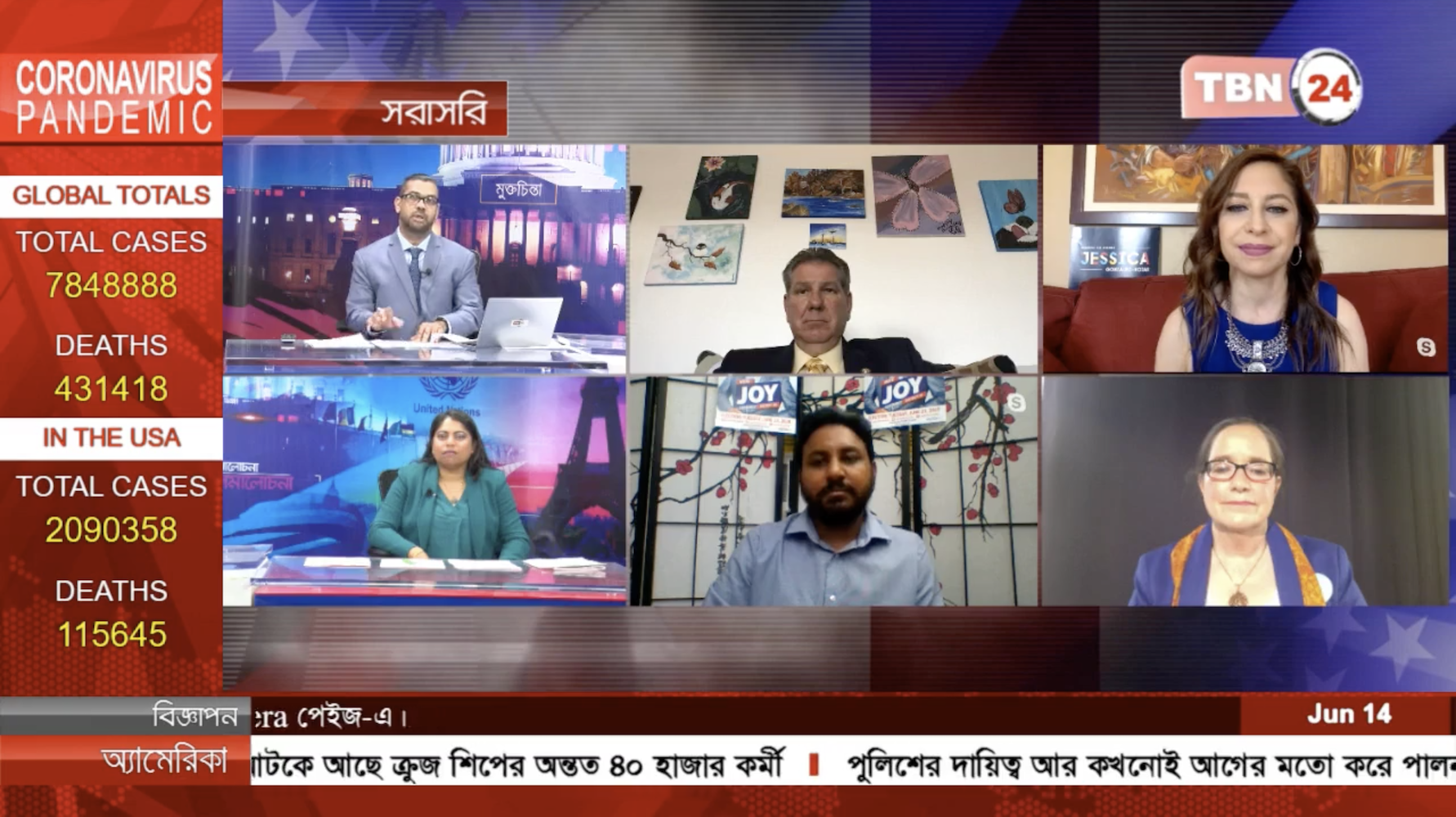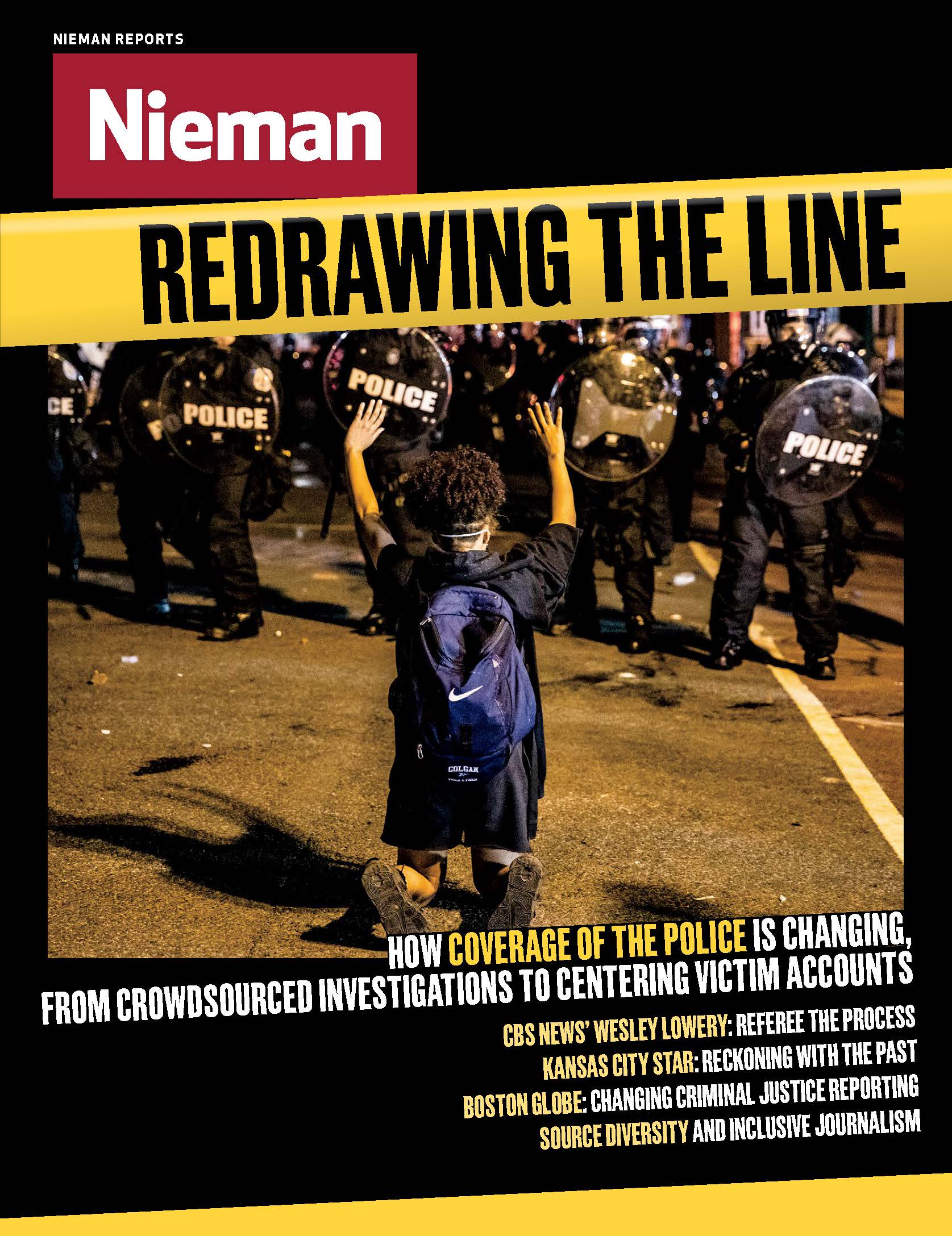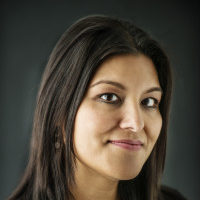
A New York Assembly race debate hosted by TBN24, which serves Bangladeshi communities, served in part as inspiration for the founding of URL Media
With URL Media, S. Mitra Kalita, a 2021 Nieman Visiting Fellow, seeks to elevate Black and brown media organizations.
The June primary to represent my district in the state legislature in Albany was a crowded one. One night, I received a text message from a neighbor to tune into a debate on Facebook, hosted by TBN24, a television news channel for Bangladeshis living around the globe.
It was like no local debate I have ever seen before, and subsequently forced me to reimagine the media’s role in elections. TBN24’s interest in the Assembly race might have been initially stoked by the fact that a Bangladeshi taxi driver and labor organizer, Joy Chowdhury, was a candidate. But moderators asked questions from the perspective of Uber drivers, small businesses, Covid victims. The discussion was relatable, and they forced candidates and their policy platforms to get personal and precise.
Over the last few weeks, people have asked me for the origin story of URL Media, the network of community media outlets I launched in January with my co-founder Sara Lomax-Reese. I think TBN24’s debate is among those ‘aha’ moments where I realized the journalism we’ve always done deserves to be upended.
After that bottom-up debate, I tracked down TBN24’s co-founder, Habib Rahman, and have not left him alone since. I find myself gut-checking with him on so many matters from, say, the stimulus bill to a candidate’s real chances of winning to how the vaccine rollout is going. What I appreciate about our conversations is that I never know if he will be relaying news from the few blocks between his house and mine (we live in bordering neighborhoods of Queens) or the growing Bangladeshi communities in Michigan and Pennsylvania, or a perspective from back home (my parents are from Assam, right next to Bangladesh).
TBN24 boasts 2.2 million fans on Facebook. On the same platform, that’s more than Newsweek and the Chicago Tribune combined. My guess is most journalists have never heard of it. URL Media is seeking to change that.
On the heels of our soft launch in January, Rahman was on WNYC’s “The Brian Lehrer Show” talking about another political race, a special election in Queens where four Bangladeshis were running. TBN24’s formula is familiar across our partner organizations: we produce content in service of our communities. And that makes us more valuable to each other, and, probably, to you. When Epicenter, my newsletter to help New Yorkers to get through the pandemic, decides we need to do something on the Census, we lean into being of service to our readers, sharing how to fill out forms and why it matters. That approach proves to be equally useful for the Haitian Times, even though our Q-and-A was rooted in a different immigrant community. It republished our story. Our content is focused, but it is hardly narrow.
By creating URL Media, we believe that, by working together, we can break through and achieve scale without sacrificing our authenticity and relevance to our core audiences. Our other hope is that you will hear about certain story lines sooner, from the perspective of those most affected, rooted in a sense of place, people and purpose. Already, we have evidence of being early on stories around food insecurity, evictions, and small business closures and adaptions.
Of late, there’s been a lot of talk of “saving” local news. We tend to define what we mean by geography. The reason I prefer the term “community news” is because it’s more expansive and defined by seeking connectivity among each other, versus stopping at a border, a zip code, an imaginary line. To serve “local” is to accept limitation. None of us works for an internet that accepts the limits of scale. Thus, serving a community feels better business and journalistic practice.
Habib and I have a lot in common, as fellow South Asians. But his viewers and WURD’s listeners do, too, as the radio station has a big Muslim listenership. His audiences care about immigration policy and the fate of DACA under President Biden, as does another network partner, Documented NY. I believe within these overlaps lie great stories and opportunity.
In January, I started my visiting Nieman fellowship at Harvard. (It’s worth noting I am indebted for it.) I am trying to experiment with coverage of New York City elections (our primary is in June) in precisely the manner TBN24 did for the Assembly race. These overlaps in our current class are where I am finding the most value. My colleague Kyle Edwards of Native News Online, in our introductory session, detailed a project on what Native communities are losing (history, knowledge, culture) because of Covid. I seized on his language of how to cover — and even archive — that which has been lost. His outlet recently published a piece with the headline: “Elders Are Our Memory Banks. Taking the COVID-19 Vaccine Can Save Them. As we near the one-year anniversary of the lockdown and help our neighbors snag vaccine appointments, I draw on lessons from entrenched communities like his, across time and generations, to foreshadow what awaits us relative newcomers.



